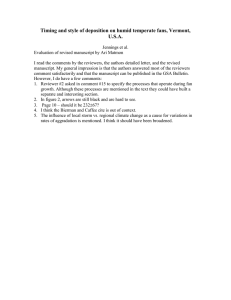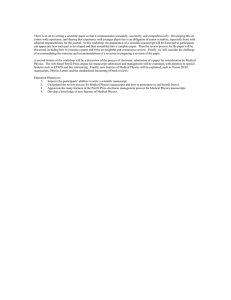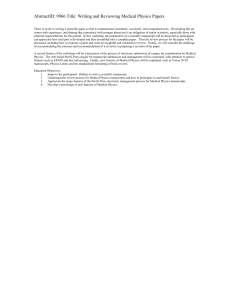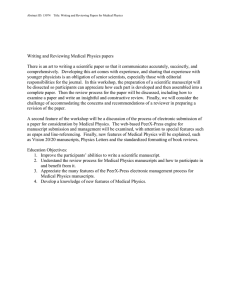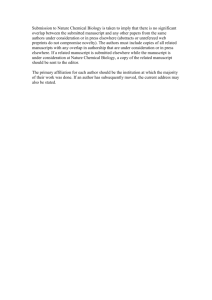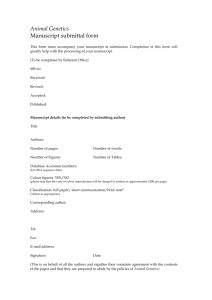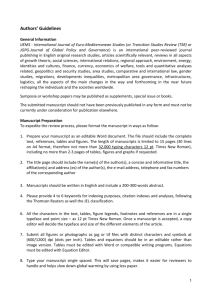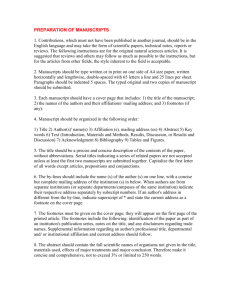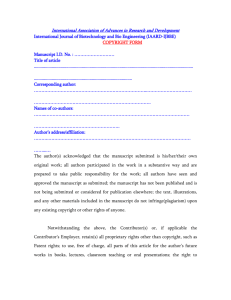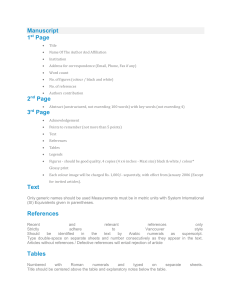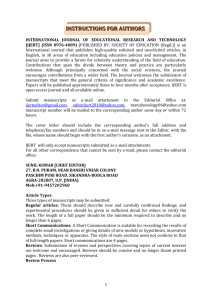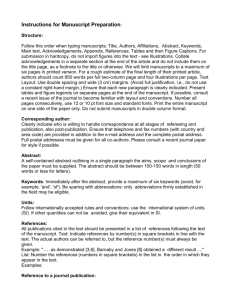Instructions for Authors
advertisement
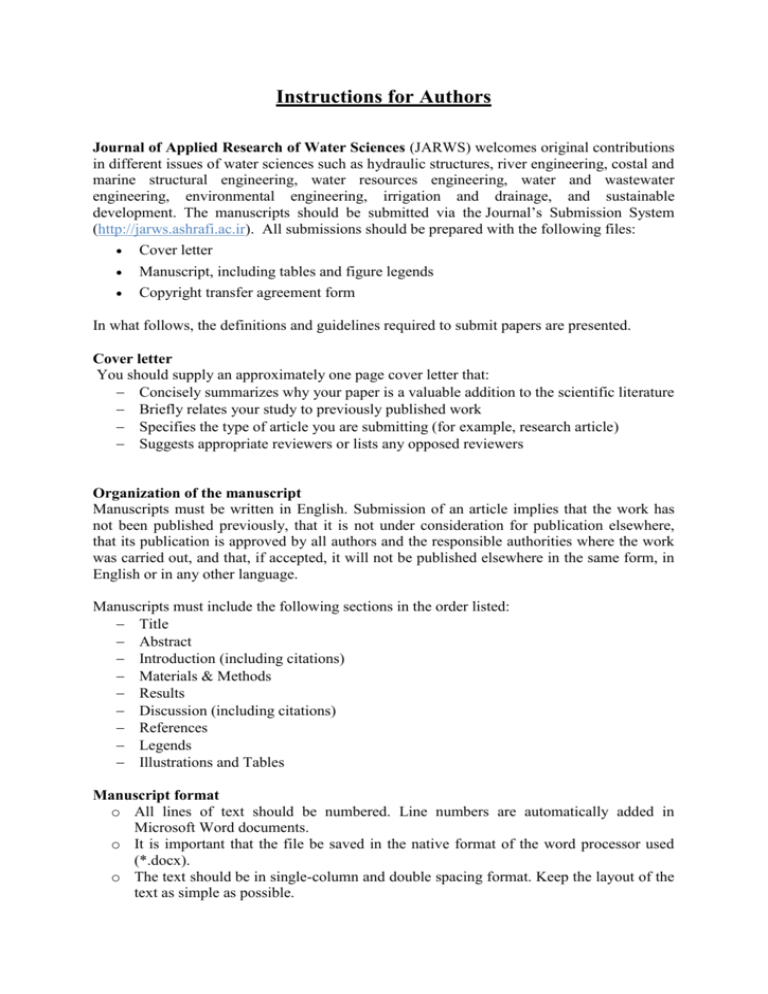
Instructions for Authors Journal of Applied Research of Water Sciences (JARWS) welcomes original contributions in different issues of water sciences such as hydraulic structures, river engineering, costal and marine structural engineering, water resources engineering, water and wastewater engineering, environmental engineering, irrigation and drainage, and sustainable development. The manuscripts should be submitted via the Journal’s Submission System (http://jarws.ashrafi.ac.ir). All submissions should be prepared with the following files: Cover letter Manuscript, including tables and figure legends Copyright transfer agreement form In what follows, the definitions and guidelines required to submit papers are presented. Cover letter You should supply an approximately one page cover letter that: Concisely summarizes why your paper is a valuable addition to the scientific literature Briefly relates your study to previously published work Specifies the type of article you are submitting (for example, research article) Suggests appropriate reviewers or lists any opposed reviewers Organization of the manuscript Manuscripts must be written in English. Submission of an article implies that the work has not been published previously, that it is not under consideration for publication elsewhere, that its publication is approved by all authors and the responsible authorities where the work was carried out, and that, if accepted, it will not be published elsewhere in the same form, in English or in any other language. Manuscripts must include the following sections in the order listed: Title Abstract Introduction (including citations) Materials & Methods Results Discussion (including citations) References Legends Illustrations and Tables Manuscript format o All lines of text should be numbered. Line numbers are automatically added in Microsoft Word documents. o It is important that the file be saved in the native format of the word processor used (*.docx). o The text should be in single-column and double spacing format. Keep the layout of the text as simple as possible. o When preparing tables, if you are using a table grid, use only one grid for each individual table and do not use a grid for each row. If no grid is used, use tabs, not spaces, to align columns. o Note that source files of figures, tables and text graphics will be required whether or not you embed your figures in the text. Do not place any figure or table into the body of the manuscript. You can embed them respectively in individual pages at the end of the manuscript. o To avoid unnecessary errors, you are strongly advised to use the 'spell-check' and 'grammar-check' functions of your word processor. o Please include page numbers. o Uses the author-date method for in-text references, whereby the source reads as the last names of the authors, then the year (e.g., Smith 2004 or Smith and Jones 2004). A References section must be included that lists all references alphabetically by last name of the first author. References must be published works only. Exceptions to this rule are theses, dissertations, and “in press” articles, all of which are allowed in the References list. References cited in text that are not found in the reference list will be deleted. Likewise, all references included in the References section must be cited in the text. Examples of reference formatting are below. Books Evans, G. M., and Furlong, J. C. (2003). Environmental biotechnology: Theory and applications, Wiley, Chichester, U.K. Journal Articles Beskos, D. E. (1987). “Boundary element methods in dynamic analysis.” Appl. Mech. Rev., 40(1), 1– 23. In-Press Articles Dasgupta, G. (2008). “Stiffness matrix from isoparametric closed form shape functions using exact integration.” J. Aerosp. Eng., in press. Proceedings Eshenaur, S. R., Kulicki, J. M., and Mertz, D. R. (1991). “Retrofitting distortion-induced fatigue cracking of noncomposite steel girder-floorbeam-stringer bridges.” Proc., 8th Annual Int. Bridge Conf., Engineers’ Society of Western Pennsylvania, Pittsburgh, 380–388.
